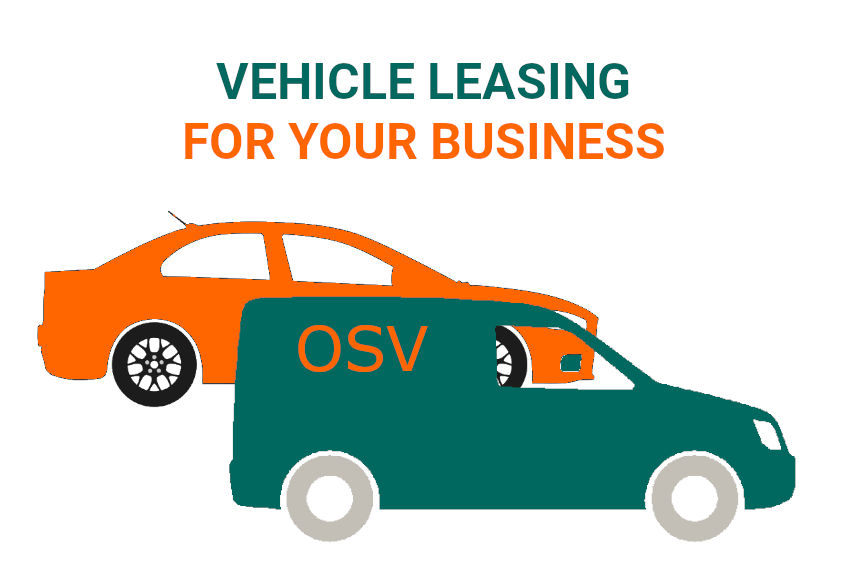Before we start talking about how to lease a car through your business, we should take a look at what business leasing actually is.

Leasing is where you have a car for a period of time, most often between two and five years. During this time, you pay a pre-agreed monthly fee. After that time is up, you hand the car back and get a new vehicle. It is essentially renting a car for a period of time.
If you’re a business there are a few leasing options for you to choose from when getting a new vehicle, and that’s what we’re here to talk about.
Want help finding that perfect business vehicle? Call our team of vehicle specialists today on 01903 538835, or request a callback.
What vehicle leasing options are there for businesses?
There are three options are available to you if you’re considering business vehicle leasing:
- Business Contract Hire
- Business Contract Purchase
- Finance Lease
What is Business Contract Hire?
Business Contract Hire, which you will often see or hear referred to as BCH or sometimes Contract Hire, is the most common form of leasing, and the one that people are referring to when they talk about leasing.
When you or your business get a vehicle with a Business Contract Hire agreement, you agree to the following:
- You have the vehicle for a set period of time (between 2 and 5 years)
- You pay a set monthly fee
- You agree to a set annual mileage
- You keep your vehicle in a good condition, subject to BVRLA Fair Wear and Tear standards
- When the contract is up you hand your vehicle back with nothing more to pay (subject to mileage and condition).
If you go over your agreed mileage or the car is judged to be in a condition that exceeds Fair Wear and Tear, then you could be subject to charges. Have questions about excess mileage fees? We’ve put together an article that should answer them all.

What are the pros and cons of Business Contract Hire?
There are several advantages to Business Contract Hire, including:
- The monthly payments are set which makes it easier to budget
- Money isn’t tied up in a depreciating asset and there is no need to worry about depreciation as you hand the vehicle back at the end of the contract
- Road tax is often included, reducing the list of things you need to worry about further
- No need to worry about negative equity as you hand the vehicle back and don’t have to think about losing money when selling the car on
Where there are advantages, disadvantages follow and there are a few when it comes to BCH, these include:
- Mileage restrictions – if you’re someone who needs to drive thousands of miles in a month due to the nature of your business then BCH isn’t for you
- Condition requirements – BCH agreements require you to keep your vehicle in a good condition and if you think that your vehicle may get damaged beyond the standard set by the BVRLA then BCH is not the right plan for you
- You don’t own the vehicle, which means you have to hand it back at the end of your contract. Some may see this as a disadvantage, while to other people and businesses this is a huge advantage
- You need to ensure that the vehicle is regularly serviced while it is in your possession.
What is Business Contract Purchase?
Business Contract Purchase works in the same way as Business Contract Hire for the duration of the contract. You pay a monthly fee for a vehicle for a set period of time. Where Contract Purchase differs from Contract Hire is that at the end of the contract, instead of returning it you have three options:
- Hand the car back with nothing more to pay, though as with BCH this is subject to mileage and conditions
- Part-exchange the car
- Buy the car for a pre-agreed value also referred to as the Guaranteed Minimum Future Value (GMFV), which is set at the beginning of the contract.
How is the Guaranteed Minimum Future Value calculated?
The GMFV is calculated by working out how much your car will be worth at the end of the contract.
This amount takes into account the mileage you’ve agreed, the length of the contract, the make and model of the car and the expected depreciation. The GMFV will not change for the duration of the contract, so you’ll know how much you will owe at the end of the contract from the very start.
What are the pros and cons of Business Contract Purchase?
Some of the advantages of Business Contract Purchase include:
- Flexibility. Business Contract Purchase is incredibly flexible, especially at the end of the contract with the three options. This makes it an ideal option for those who aren’t sure what they want to do with the vehicle
- The vehicle can be depreciated into company accounts
- The purchase price is pre-agreed which enables you to budget for it should you decide you want to purchase it at the end of the agreement
- It’s an asset to the business which can benefit the company’s balance sheet.
However, there are some disadvantages, such as:
- Higher monthly payments than if you had a Business Contract Hire agreement
- Interest rates can be marginally higher
- The whole cost of the vehicle is shown on your credit file
- Taxing the car is your responsibility
- For the duration of the contract, you are still required to keep to the set mileage and ensure your vehicle is kept in a good condition – as you may decide to hand the car back at the end of the contract.
What is Finance Lease?
A Finance Lease is one of the traditional ways to get a vehicle for a business and is more suited to vans or vehicles that are going to be doing excessive mileage or suffer damage that falls outside of Fair Wear and Tear.
Over an agreed period of time you make monthly payments for the vehicle, as you would for a normal lease contract, however, once the contract ends you have two options:
- You sell the vehicle in order to clear the remaining finance, which you will often hear referred to as a balloon payment. The balloon payment amount is set at the beginning of your contract.
- You pay something called a Peppercorn Rental and keep the vehicle for another year. The Peppercorn rental is usually equivalent to one monthly payment.
What are the pros and cons of a Finance Lease?
Some of the advantages of a Finance Lease include:
- Any equity you make when selling the vehicle to a third party is yours to keep
- The agreement can be ended early – as long as you make a payment that clears the remaining finance
- No mileage or wear and tear restrictions.
However, where there are positives there are some negatives you should be aware of:
- You are responsible for paying the balance of the balloon payment if you sell your vehicle for less than the sum you owe
- You don’t own the vehicle unless you purchase it from the person you sold it to.
Have questions about the finance options available? Download our FREE guide to leasing.
What are the business benefits of vehicle leasing?
We’ve already gone through the individual benefits of each lease option, but there are general benefits to vehicle leasing for businesses, including tax benefits.
Tax Benefits
If your business is VAT registered and you have decided to lease through it, then you can claim up to 50% of the VAT back on the monthly payments. If you get a van then you are able to claim 100% of the VAT back.
There is an exception to this rule. If you make personal journeys in your vehicle, using it for personal errands outside of work hours, then you cannot claim the VAT back.
You can, however, claim the monthly cost of the lease against profits.
If your car emits less than 110g/km of CO2 then you can claim 100% of the monthly cost back, but if it emits more than 110g/km of CO2 then you can claim 85% back.
Off and On Balance Sheet
If you have a vehicle on a Business Contract Hire agreement, the liability of the finance can be “off balance sheet”.
If you have a Finance Lease agreement, then it can be “on balance sheet”.
Both of these options are beneficial to a business.
Vehicle leasing and Company Car Tax
If you have a company car then it’s possible you’ll also have to pay Company Car Tax.
If you use your vehicle for personal errands, including the daily commute to and from the office, then you will be required to pay Company Car Tax.
Unless you have a van, the amount you pay will depend upon several things:
- The type of vehicle
- Your personal tax bracket
- How much CO2 the vehicle emits
The general rule to go by when looking for a company vehicle (if you are looking to pay less Company Car Tax) is, the more CO2 the car emits, the higher the Company Car Tax you’ll have to pay.
We hope that this article has provided you with the information you need when it comes to vehicle leasing for your business, including the options available and their pros and cons.
We believe it’s important to be informed when making a decision about your vehicles and the options that you can choose from whether leasing or buying.

